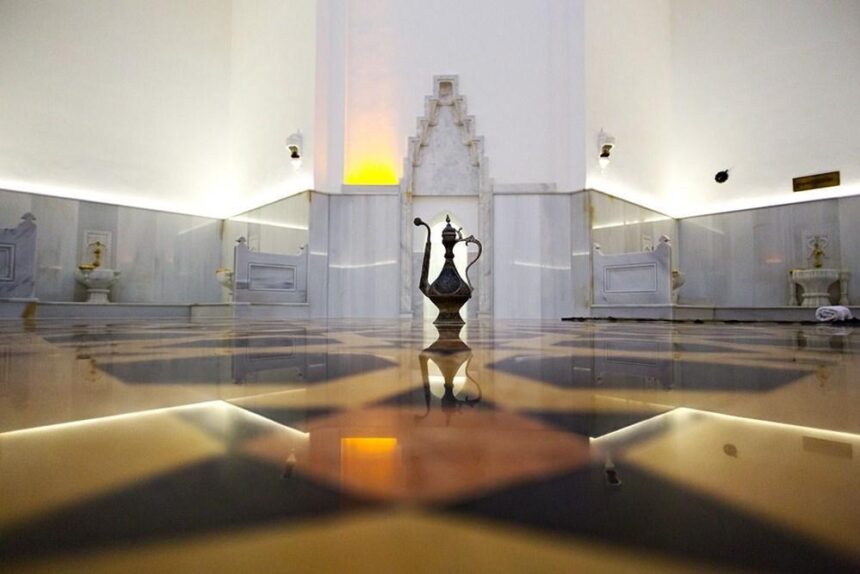By OMER GOREN
Within the scope of the new normalization decisions, businesses such as Turkish baths (hamams), saunas, spa and massage parlors started to serve between 9 am and 7pm as of March 15, 2021. However, many tradesmen did not open their businesses due to people’s anxiety to spend long time in public spaces. Those who opened their business on the other hand, suffer from high costs.
There are nearly 600 private hamams only in Istanbul, 90 of which are historical, each of them employing 5 to 25 people. The monthly cost of an average bath varies between TRY 20,000-100,000. The lowest service fee is TRY 40 TL, and may reach TRY 500 in luxurious places. Hamam business holders think that they are left alone with their problems.
Mostly originate from Sivas’s Dogansar and Tokat’s Resadiye regions, hamam business holders have no other choice but to continue their professions passed from father to son. The sector used to serve male and female customers with a capacity of 70-80% before the pandemic, “then hit the bottom,” as they put it. Some of them were bankrupted and had to shut down or sell their businesses while others tried to survive with their savings.
People still stay away from hamams due to worries about contagion. The most popular customers of hamams nowadays are the Russian tourists, who generally prefer historical hamams and hotel saunas. “We neither have the power nor the budget to race with 5-star hotels,” an hamam holder tells, “A circular by the Ministry of Internal Affairs asks us to work with 50% capacity, but we are not at that level yet. Our hopes postponed to May.”
Istanbul Chamber of Bathers General Secretary Huseyin Yilmaz said that the interest and trust in baths other than tourists have decreased due to the virus perception and economic crisis. “The virus dies when the hands are washed with soap, but how can the virus survive in a foam bath with 65-70 degrees hot water? This is impossible,” he says.
Tourism keeps the tradition alive
Yilmaz, who is also the manager of the Beyoglu Aga Hamam, says that the number of people enter a hamam are much more less than those travel in public midibuses. “Thermal springs were kept open during the pandemic but hamams were closed. We constantly ir condition for hamams. Everyone wears a mask and none of our employees caught Corona. Turks do not like baths as much as before, but tourists are very interested. Our culture dies among our own citizens, but tourists keep it alive. The bath culture would have died, if tourists did not exist. The Turkish baths in Istanbul are saved by tourists,” he notes.










